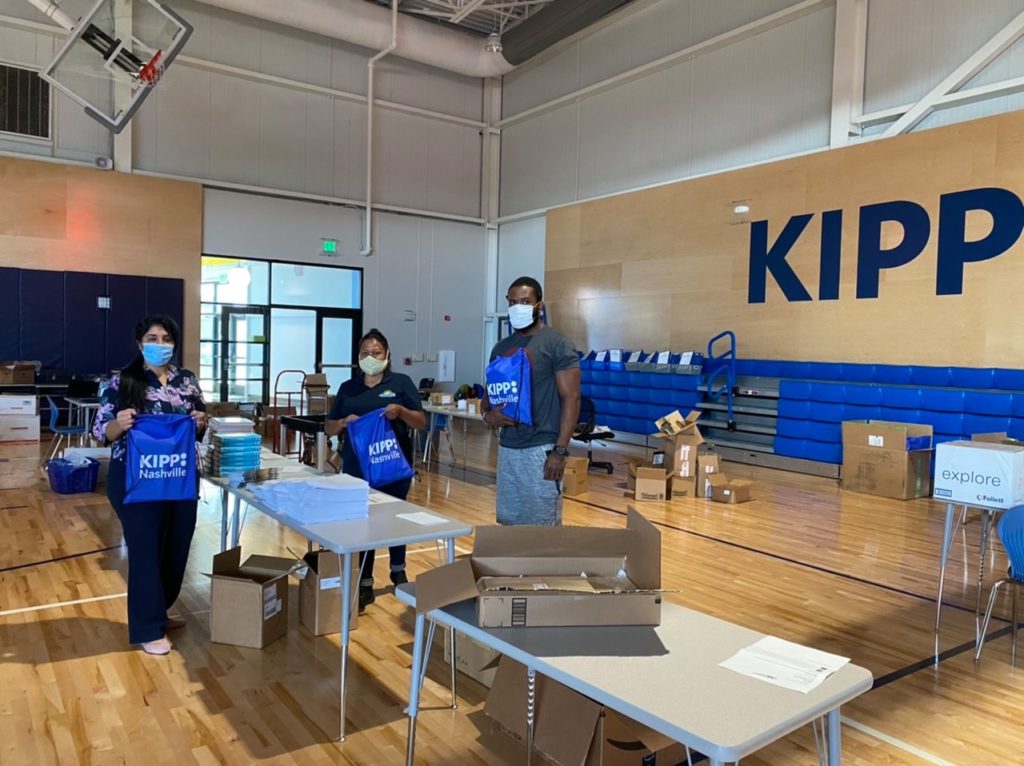
The latest battle between Metro Schools and the State Board of Education has ended in a third KIPP Nashville school and fifth charter overall being authorized against the district’s wishes.
Some local board members say this will hurt the district more than ever given the pandemic, but KIPP families in Southeast Nashville say the school is desperately needed.
The state board’s power to overturn the local board is made possible by a controversial 2014 state rule. The law designates state board members as appellate authorizers of charter schools in districts that have at least one priority school.
It gives charters a backchannel to create new classroom seats after they are rejected by local school boards.
It’s how KIPP Antioch College Prep elementary and middle schools were opened. And it’s how the charter network is setting up a new high school despite the history of strong pushback from some local education leaders.
“KIPP has really shown zero respect for our vote as a board. It’s shown complete disregard for democracy and the democratic process,” said Amy Frogge, a former Metro Schools board member, during a meeting in 2015. “It has shown a complete disregard for the taxpayers.”
During her time on the school board, Frogge was one of the most outspoken against new charter schools.
She took on the issue again before leaving office this summer, after KIPP set out to appeal to the state for a third time.
“Charter school investors, often wealthy white businessmen who would never send their own child to a charter school, make money on charter schools for land deals, federal tax credits and other means,” said Frogge, during a virtual meeting in July.
She says the state board’s decision to overrule local officials will strip funds from the district.
Renewed tensions
“It’s ironic that the state … has ordered Nashville to get its financial house in order while simultaneously forcing us to open new charter schools that we can’t afford,” said Frogge. “We are in the midst of a pandemic and a financial crisis in Nashville, and yet we’re being forced to take on more debt for the city.”
Plus, she says opening KIPP Antioch College Prep High School and Nashville Collegiate Prep — which were authorized in September — will most affect students living in the district’s educationally underserved communities.
In a statement, Superintendent Adrienne Battle told WPLN News that “decisions about which charter schools to approve in Davidson County should be the responsibility” of the local school board.
Like Frogge, Battle also says that the state’s decision will reduce funding in the district’s traditional public schools.
During a public hearing in August, the district argued KIPP’s new high school would have a net fiscal impact of $4.3 million per year, once the school is fully enrolled.
Contradictory analysis
But a different state analysis concludes otherwise.
“After a thorough review of the documentation and data provided by MNPS in support of its argument, State Board staff found that MNPS did not prove that the approval of KACPHS’s application would present a substantial negative fiscal impact on the district,” said Elizabeth Tullos, a spokesperson for the State Board of Education.
Tullos told WPLN News that an independent review committee found that KIPP Antioch College Prep High School “met or exceeded the standard for approval” based on KIPP’s academic, operational, financial and performance record.
State board staff also say the analysis found that KIPP Nashville’s current high school “has a larger percentage of students achieving a 21 on the ACT than the district or state average.” This is on top of KIPP Nashville schools regularly performing above both local and state averages on the TNReady assessment.
Metro Schools, however, says KIPP Nashville Collegiate High School only earned a TVAAS growth score of 1 — which measures student growth year over year regardless of student proficiency — in the past two years.
But then there’s overcrowding in Southeast Nashville. It’s one of the county’s fastest growing areas. And two of its zoned high schools are either pushing or beyond capacity.
At Antioch High School, building capacity is at 93.6%. It’s projected to increase to 104.6% during the next five years. Cane Ridge High School currently sits at 109% and is expected to rise to 132% during that same period.
And in the end, KIPP made its case that a new high school is what parents want.
The state board voted 10-0 in their favor after the appeal process.
While the state board has overturned Metro Schools five times since the rule went into effect in 2014, they’ve upheld the local board’s charter school rejections on six occasions.
Parents want options
“I’m really thankful for the state board for listening to our outcries and the parents,” said Dedra Christian, a parent at KIPP Nashville’s elementary and middle schools. “This is a grand feat for Antioch.”
Christian says there aren’t a lot of quality education options in her neighborhood, and that being able to stay in the KIPP network is the only thing keeping her children in Metro Schools.
“Parents of our fifth and six graders, and our parents of our … first and second graders, are telling me every time they see me, ‘We want you to open a high school because we want our kids to stay in the KIPP system,’ ” said Randy Dowell, executive director at KIPP Nashville.
Dowell says, generally, no matter the demand, KIPP will always have an uphill battle in making the case for adding new buildings.
“I think the issue with charter schools in Nashville has become political,” says Dowell. “The people that are the loudest arguing against charter schools … almost to a person do not live in the communities where charter schools are operated.”
KIPP’s new Antioch high school is expected to open in 2023. The state’s decision cannot be appealed by Metro Schools.

